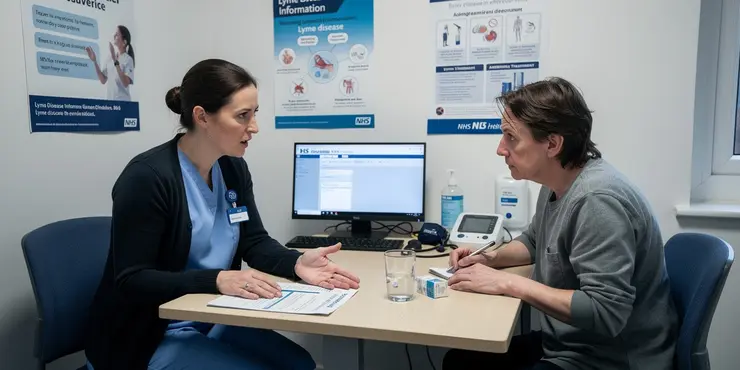
Find Help
More Items From Ergsy search
-
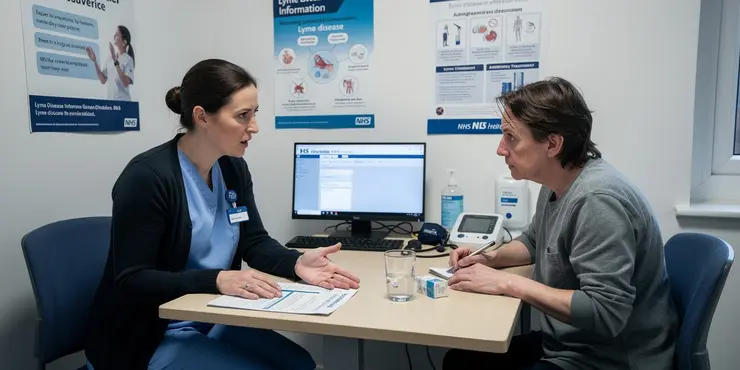
How effective are antibiotics in treating Lyme disease?
Relevance: 100%
-
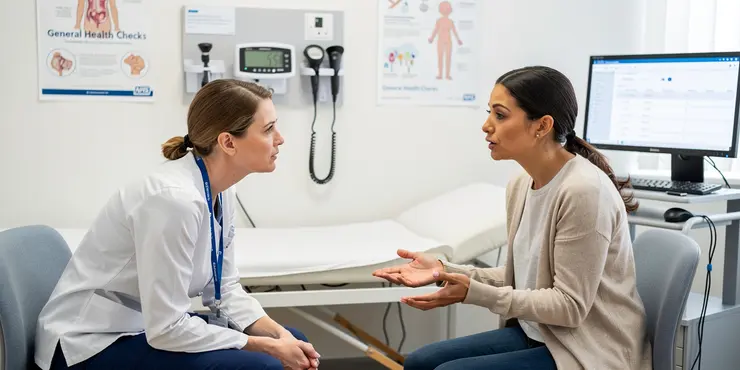
Can Lyme disease be treated?
Relevance: 77%
-
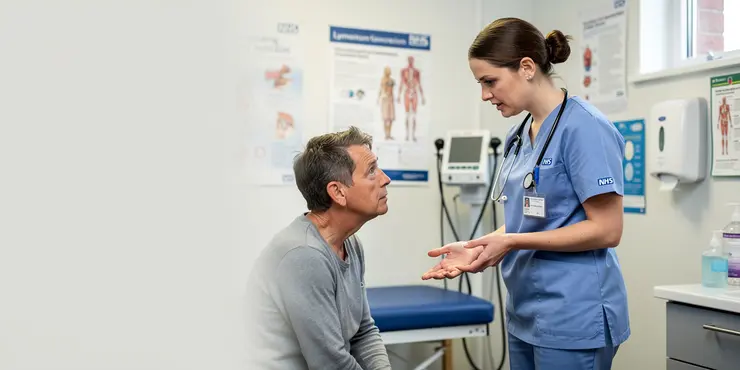
What is Lyme Disease?
Relevance: 75%
-
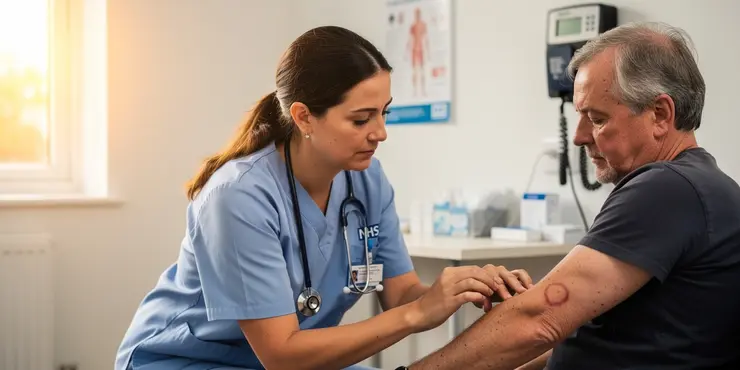
Lyme disease: What is it?
Relevance: 68%
-
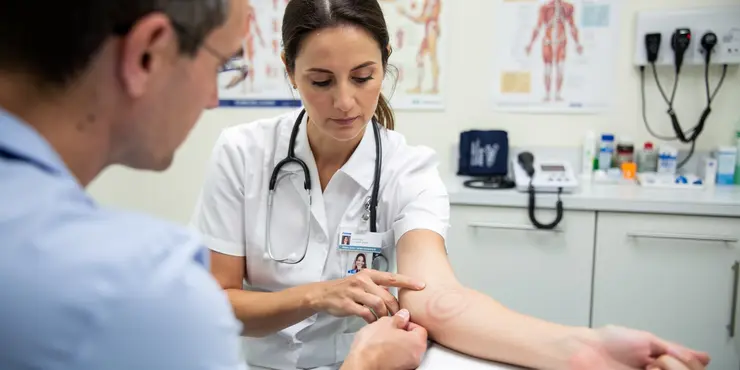
What happens if Lyme disease is left untreated?
Relevance: 67%
-
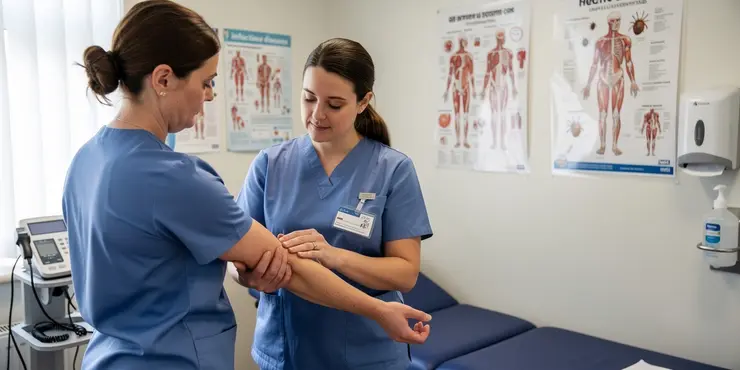
What is the first sign of Lyme disease?
Relevance: 66%
-
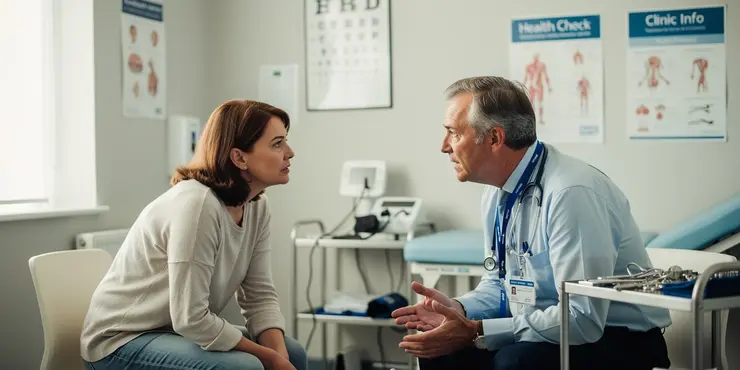
Is Lyme disease contagious between humans?
Relevance: 65%
-
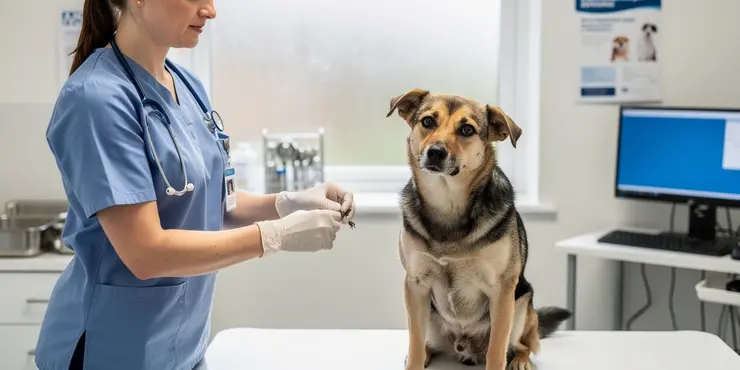
Can pets get Lyme disease?
Relevance: 65%
-
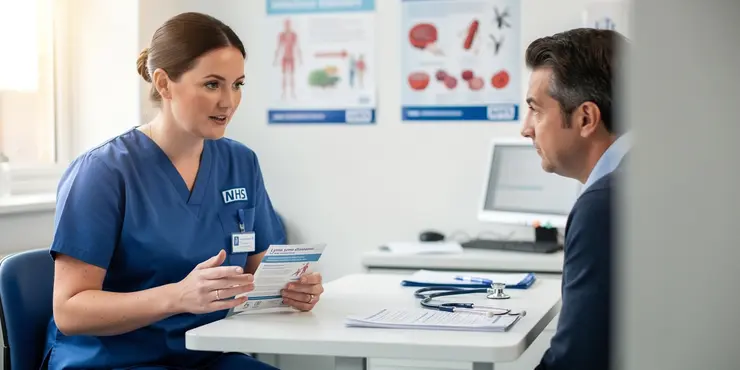
What tests are available for diagnosing Lyme disease?
Relevance: 64%
-
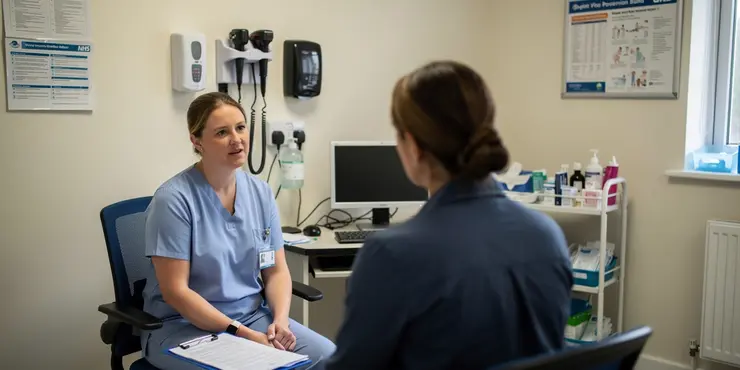
What is post-treatment Lyme disease syndrome (PTLDS)?
Relevance: 63%
-
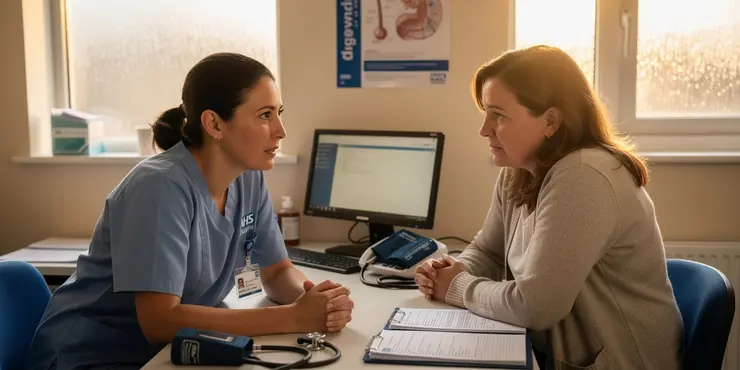
Is there a vaccine for Lyme disease?
Relevance: 62%
-

How do you prevent Lyme disease?
Relevance: 61%
-
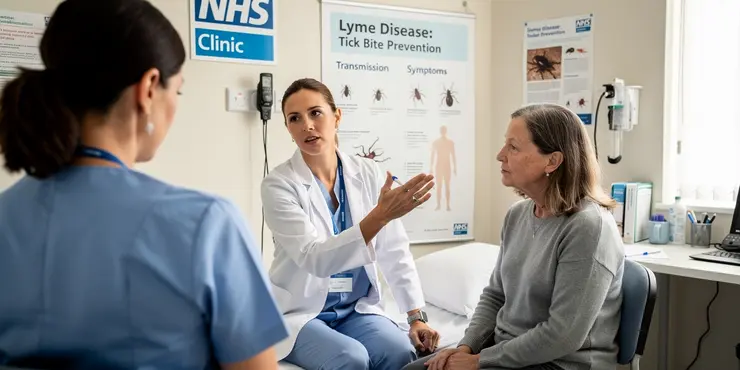
How is Lyme disease transmitted?
Relevance: 60%
-
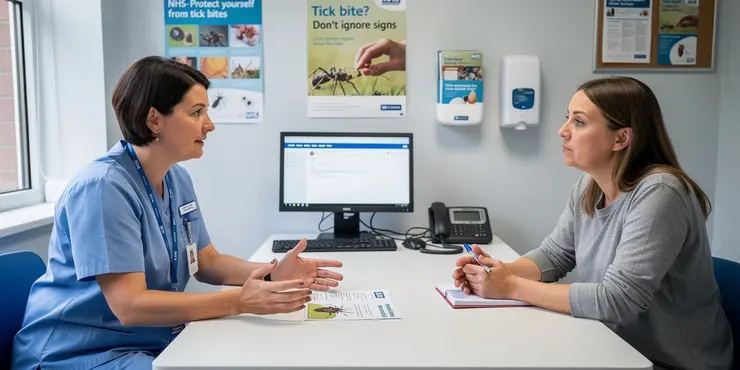
Can you get Lyme disease more than once?
Relevance: 59%
-
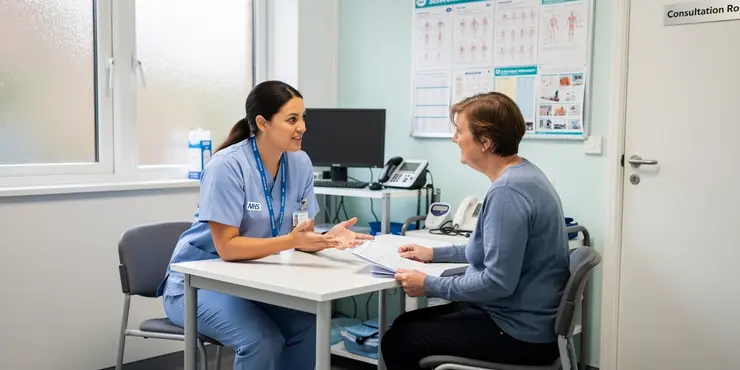
What types of antibiotics are typically used to treat Lyme disease?
Relevance: 58%
-
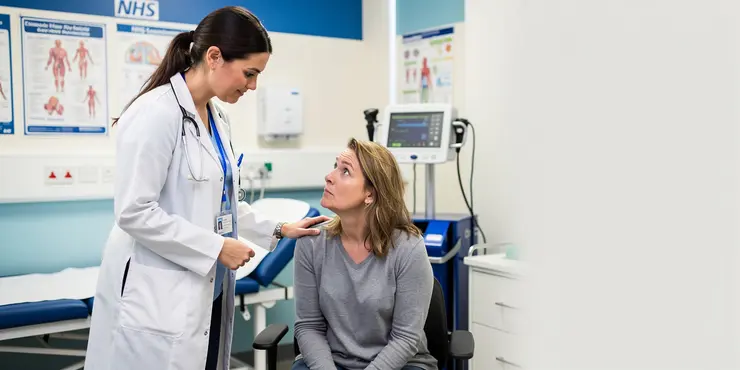
What are common symptoms of Lyme disease?
Relevance: 57%
-
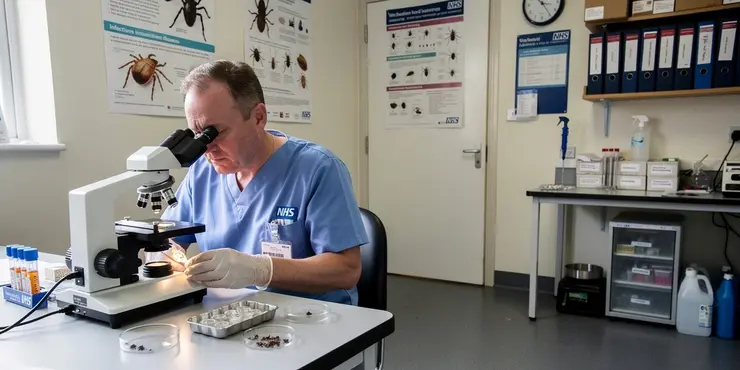
What kind of ticks carry Lyme disease?
Relevance: 54%
-
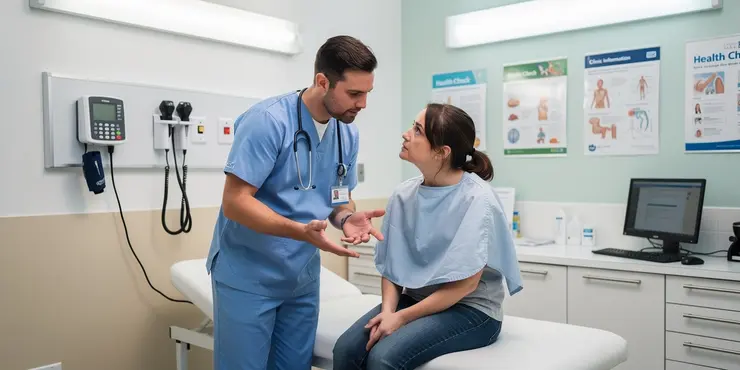
Where is Lyme disease most commonly found?
Relevance: 54%
-
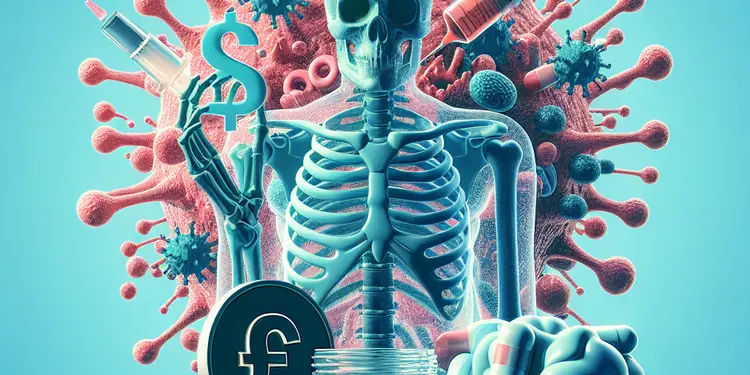
Can antibiotics alone cure flesh-eating disease?
Relevance: 50%
-

What are common side effects of antibiotics?
Relevance: 45%
-
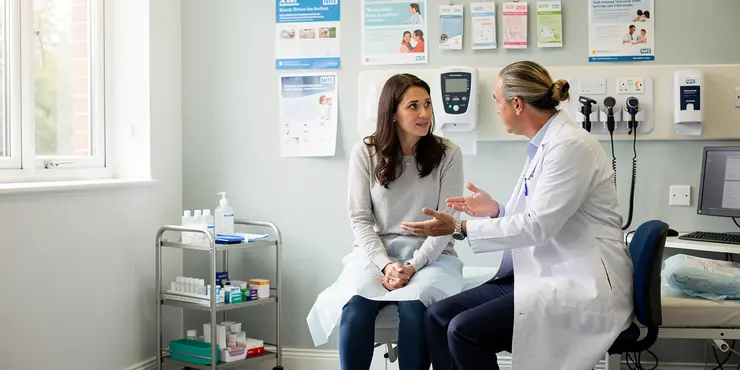
Can Lyme disease cause long-term health problems?
Relevance: 43%
-

Can flesh-eating disease recur after treatment?
Relevance: 42%
-
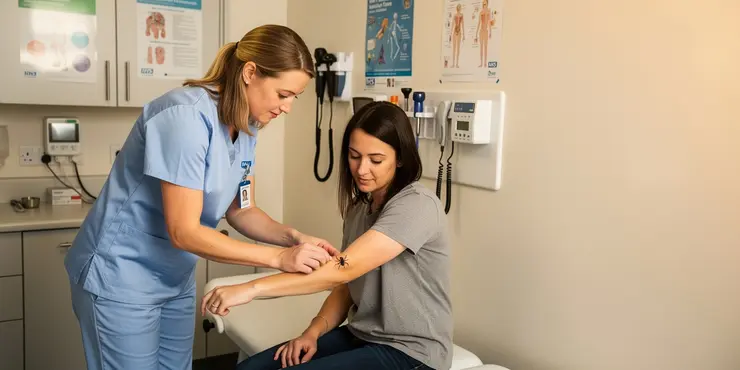
How long does a tick need to be attached to transmit Lyme disease?
Relevance: 40%
-
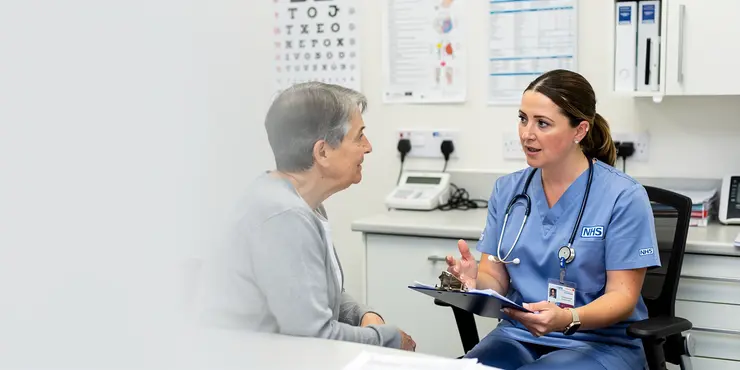
What antibiotics are used to treat gonorrhoea?
Relevance: 39%
-
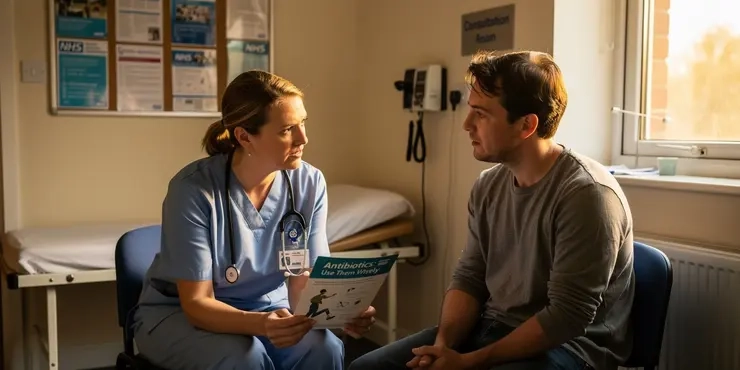
Antibiotics and You: An introduction to antibiotic resistant infections
Relevance: 39%
-

What treatments are available for Crohn's disease?
Relevance: 39%
-

Can the bubonic plague become resistant to antibiotics?
Relevance: 39%
-

Can taking antibiotics be harmful?
Relevance: 39%
-

Is it bad to take antibiotics?
Relevance: 39%
-

Do antibiotics work on viral infections?
Relevance: 38%
-

What is antibiotic resistance?
Relevance: 38%
-
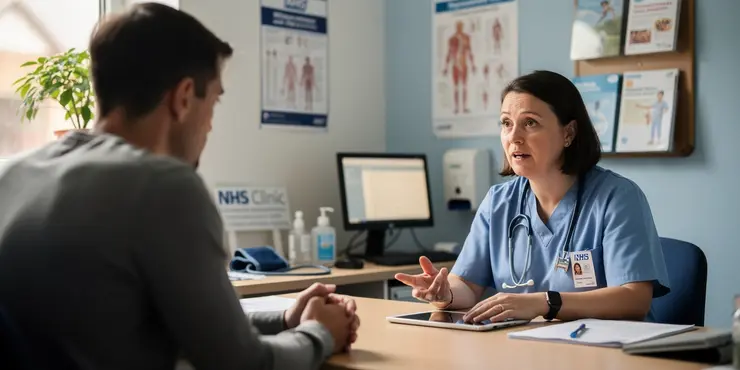
Can appendicitis be treated with antibiotics?
Relevance: 38%
-

Why is antibiotic resistance a problem?
Relevance: 38%
-
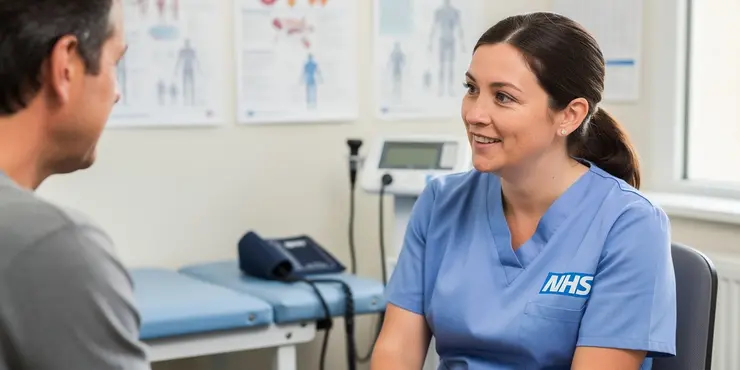
Why is antibiotic resistance a concern with gonorrhoea?
Relevance: 37%
-
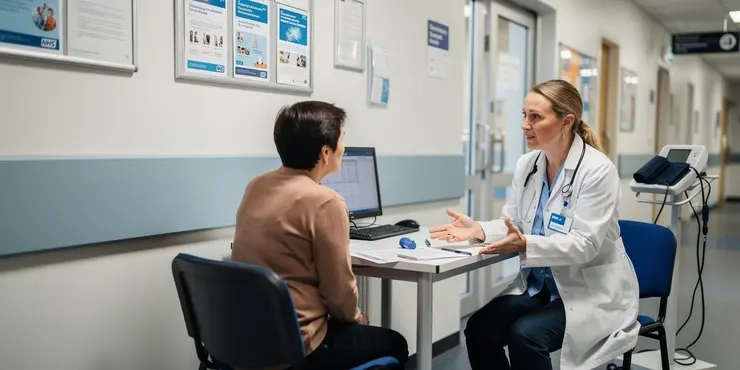
Acute COPD in Adults: Antibiotics or not - Dr Nick Francis
Relevance: 36%
-

Can taking antibiotics frequently cause resistance?
Relevance: 36%
-
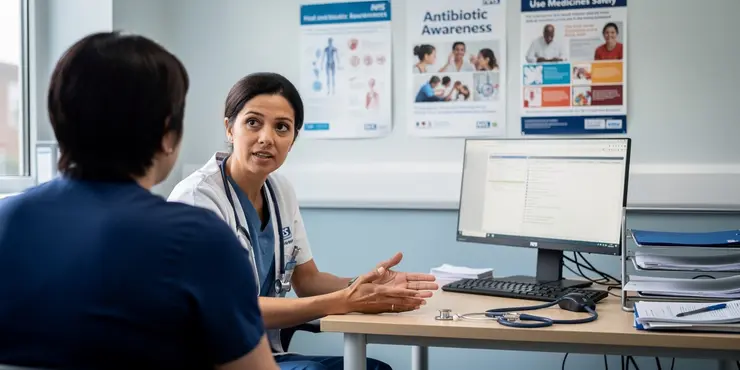
Can I take antibiotics for a cold?
Relevance: 35%
-

Is taking antibiotics always bad?
Relevance: 35%
-
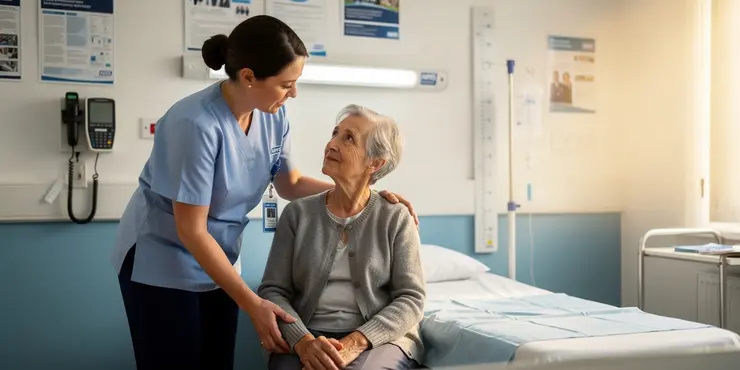
What treatments are available for Alzheimer's disease?
Relevance: 35%
-

Should I stop taking antibiotics if I feel better?
Relevance: 35%
Understanding Lyme Disease
Lyme disease is a bacterial infection caused by the bacterium Borrelia burgdorferi, which is transmitted to humans through the bite of infected ticks. It is most commonly reported in rural areas, especially in woodlands and heathlands, as well as parks and gardens with untended vegetation. Early symptoms often include a circular rash around the bite area, fever, headache, fatigue, and muscle pain. If untreated, it can lead to more serious health problems affecting the heart, nervous system, and joints.
The Role of Antibiotics
Antibiotics are the cornerstone treatment for Lyme disease, especially when diagnosed in its early stages. The choice of antibiotic can depend on various factors, including the stage of the disease, patient age, and specific symptoms. Early and accurate diagnosis is crucial in ensuring effective treatment, as the sooner antibiotics are initiated, the higher the chance of preventing disease progression.
Common Antibiotics Used
The most commonly prescribed antibiotics for Lyme disease in the UK include Doxycycline, Amoxicillin, and Cefuroxime. Doxycycline is often the first-line treatment for adults and children over eight years old due to its effectiveness and convenient dosing schedule. Amoxicillin can be an alternative for those who cannot take Doxycycline, such as pregnant women and younger children. Cefuroxime might be used for certain patients with contraindications to the other antibiotics.
Effectiveness and Challenges
When administered early, antibiotics can be highly effective, with most patients experiencing full recovery. However, challenges persist, especially with late-stage diagnosis where symptoms can linger even after treatment, a condition known as Post-Treatment Lyme Disease Syndrome (PTLDS). Some patients report persistent fatigue, pain, or cognitive difficulties despite completing antibiotic courses, which emphasizes the importance of prompt medical attention.
Prevention and Awareness
Despite antibiotics' effectiveness, prevention remains a critical strategy. People are encouraged to take precautions in high-risk areas by wearing long sleeves, using tick repellents, and checking for ticks after outdoor activities. Additionally, awareness campaigns in the UK emphasize early symptom recognition and the importance of seeking medical advice to improve outcomes.
Summary
In summary, antibiotics are generally effective in treating Lyme disease, particularly when administered promptly. While most patients respond well to treatment, the key challenges include the risk of long-term symptoms if diagnosis is delayed. Ongoing research into the complex nature of Lyme disease continues, with a focus on improving diagnostics and treatment protocols to enhance patient recovery rates.
What is Lyme Disease?
Lyme disease is an infection caused by tiny germs. These germs are called Borrelia burgdorferi. They get into your body when a tick bites you. You can find ticks in the countryside, especially in woods and grassy areas. Sometimes, they are in gardens too. When you first get Lyme disease, you might see a round red mark on your skin where the tick bit you. You might also feel like you have the flu, with a fever, headache, and sore muscles. If you don't get treated, Lyme disease can make your heart, nerves, and joints very sick.
How Do Antibiotics Help?
Antibiotics are medicines that kill germs. They are very important for treating Lyme disease. It is best to take antibiotics soon after you find out you have Lyme disease. This way, they work the best and stop the illness from getting worse. Doctors choose which antibiotic to use based on how bad the disease is, how old you are, and what symptoms you have.
Which Antibiotics Are Used?
In the UK, common antibiotics for Lyme disease are Doxycycline, Amoxicillin, and Cefuroxime. Doxycycline is often given to adults and kids over eight years old because it works well. Amoxicillin is used if someone cannot take Doxycycline, like pregnant women and young children. Cefuroxime is given to some people who can't take the other two medicines.
How Well Do Antibiotics Work?
Antibiotics work well if you take them early. Most people get better after taking them. But if Lyme disease is found late, some people might still feel tired or in pain after treatment. This is called Post-Treatment Lyme Disease Syndrome (PTLDS). So, it is important to see a doctor quickly if you think you have Lyme disease.
How to Stay Safe from Lyme Disease
To prevent Lyme disease, it is important to be careful in places where ticks live. Wear long sleeves, use tick spray, and check your skin for ticks after being outside. In the UK, there are programs to teach people about the early signs of Lyme disease and to see a doctor if they feel sick.
Summary
To sum up, antibiotics usually help people get better from Lyme disease, especially if taken early. But if treatment is late, some problems might last longer. Researchers are working hard to learn more about Lyme disease. They want to find better ways to diagnose and treat it, so more people can recover quickly.
Frequently Asked Questions
What is Lyme disease?
Lyme disease is an infectious disease caused by the bacterium Borrelia burgdorferi, transmitted to humans through tick bites.
How are antibiotics used to treat Lyme disease?
Antibiotics are the primary treatment for Lyme disease, effective in eliminating the infection and preventing complications if given early.
Which antibiotics are commonly prescribed for Lyme disease?
Common antibiotics for Lyme disease include doxycycline, amoxicillin, and cefuroxime axetil.
How effective are antibiotics in treating early-stage Lyme disease?
Antibiotics are highly effective in treating early-stage Lyme disease, with most patients recovering fully when treated promptly.
Can Lyme disease be cured with antibiotics if detected early?
Yes, if Lyme disease is detected and treated early, antibiotics can cure the infection and prevent long-term symptoms.
How long is the typical antibiotic treatment for Lyme disease?
The typical antibiotic treatment lasts for about 10 to 21 days, depending on the stage and severity of the disease.
What factors affect the effectiveness of antibiotics in treating Lyme disease?
Effectiveness depends on factors such as the stage of the disease, promptness of treatment, and the specific antibiotic used.
Are antibiotics effective in treating late-stage Lyme disease?
Antibiotics can still be effective in late-stage Lyme disease, but treatment may be longer and not all symptoms may resolve completely.
Can Lyme disease recurrence happen after antibiotic treatment?
Recurrent symptoms can occur, but it's often not due to active infection; rather it may be due to immune system responses or residual damage.
What are the success rates of antibiotic treatment for Lyme disease?
Most people treated with antibiotics recover fully, especially if treated early, with a success rate often exceeding 90%.
Can antibiotic-resistant strains of Lyme disease occur?
Antibiotic-resistant strains of Borrelia burgdorferi are rare, and most strains respond well to prescribed treatments.
What happens if Lyme disease goes untreated?
Untreated Lyme disease can lead to severe symptoms affecting the joints, heart, and nervous system, known as late disseminated Lyme disease.
Can antibiotics treat Lyme arthritis?
Antibiotics can treat Lyme arthritis, but recovery may take longer and require a more extended course of treatment.
Is intravenous antibiotic treatment necessary for Lyme disease?
Intravenous antibiotics are typically reserved for severe cases involving neurological or cardiac complications.
Are there alternative treatments if antibiotics don't work for Lyme disease?
While antibiotics are the primary treatment, additional therapies and supportive care may help manage persistent symptoms.
How soon should antibiotics be taken after a Lyme disease diagnosis?
Antibiotics should be started as soon as possible after diagnosis to improve the chances of a complete recovery.
Can antibiotics prevent Lyme disease if taken after a tick bite?
A single dose of doxycycline may be given as prophylaxis within 72 hours of an Ixodes tick bite in high-risk areas.
Are there any side effects of antibiotics used for Lyme disease?
Common side effects include gastrointestinal upset, allergic reactions, and photosensitivity, depending on the antibiotic.
Can long-term antibiotic use be harmful?
Long-term use can lead to antibiotic resistance, gut microbiota disruption, and other side effects; it's not typically recommended.
Is follow-up testing needed after antibiotics for Lyme disease?
Follow-up testing is not usually necessary unless symptoms persist or reappear, as antibodies can remain in the system for years.
What is Lyme disease?
Lyme disease is an illness you can get from a tick bite. Ticks are tiny bugs. If a tick bites you, it can make you sick.
Signs you might have Lyme disease:
- You feel tired.
- You get headaches.
- Your muscles or joints hurt.
- You get a rash that looks like a bull's-eye.
If you think you have Lyme disease, tell a grown-up. A doctor can help you get better.
Here are some ways to stay safe from ticks:
- Wear long sleeves and pants outside.
- Check your body for ticks after playing outside.
- Use tick spray to keep ticks away.
Lyme disease is an illness. Tiny germs called bacteria make it happen. The bacteria's name is Borrelia burgdorferi. You can get Lyme disease if a tick bites you. Ticks are very small bugs.
How do medicines help with Lyme disease?
Doctors use medicine called antibiotics to help people who have Lyme disease. These medicines fight the germs that make you sick. It's important to take all the medicine the doctor gives you. If you have questions, you can ask a doctor or a nurse.
Here are some tips that can help you remember to take your medicine:
- Use a calendar or chart to mark each day you take your pills.
- Set an alarm to remind you when it's time to take your medicine.
- Ask a family member or friend to help remind you.
Antibiotics are medicines that help fight Lyme disease. They work best if you take them early. Antibiotics stop the infection and stop problems from happening later.
What medicine do doctors give for Lyme disease?
Doctors give medicine called antibiotics to help people with Lyme disease. Some common medicines are:
- Doxycycline
- Amoxicillin
- Cefuroxime
If you find reading hard, you can try these ideas:
- Ask someone to read with you.
- Use a ruler or finger to follow the words.
- Listen to audiobooks about health topics.
Lyme disease is treated with special medicines called antibiotics. Here are some common antibiotics used to help people get better from Lyme disease:
- Doxycycline
- Amoxicillin
- Cefuroxime Axetil
If reading is hard, you can try reading out loud, or ask someone to read with you. You can also find apps that read the text for you.
Do antibiotics work well for early Lyme disease?
Antibiotics are medicines that can help people get better from Lyme disease if they take them soon after getting sick. Most people who get treated quickly feel all better after.
Can medicine help if Lyme disease is found quickly?
Yes, if doctors find Lyme disease quickly and treat it, medicine called antibiotics can stop the illness. This means you won't have problems later on.
How long do you take medicine for Lyme disease?
Doctors give medicine called antibiotics to help you get better from Lyme disease. You usually need to take these pills for 2 to 4 weeks. The doctor will tell you how long you need to take them.
If you need help, you can use tools like reminders on a phone to help you remember to take your medicine every day. You can also ask someone to help you keep track of your pills.
People usually take medicine called antibiotics for about 10 to 21 days. The time can change if the illness is more or less serious.
What things make antibiotics work better or worse for Lyme disease?
How well the treatment works depends on:
- How bad the illness is.
- How quickly you start treatment.
- Which medicine (antibiotic) you take.
You can use tools like read-aloud apps or audio books to help understand this information better.
Do antibiotics help if you have Lyme disease for a long time?
Medicines called antibiotics can help treat Lyme disease, even if it has been around for a long time. You might need to take the medicine for longer. Some problems might not go away completely.
Can Lyme disease come back after taking medicine?
Sometimes symptoms come back. This does not always mean the infection is still there. It might happen because of how our body's defense system works or because of leftover damage from before.
How well do antibiotics work for Lyme disease?
Antibiotics are medicines that help fight infections. They can help people get better from Lyme disease.
If you get Lyme disease, doctors give you antibiotics to help you feel better. Most people feel much better after taking the medicine.
Here are some tips to help understand:
- Ask a doctor or nurse if you have questions.
- Use pictures or diagrams to understand more.
- Listen to information on a computer or phone if reading is hard.
Most people get better when they take medicine called antibiotics. It is important to start taking them soon to feel better quickly. About 9 out of 10 people feel all better after taking antibiotics.
Can Lyme disease germs get strong against medicine?
Some germs that cause Lyme disease, called Borrelia burgdorferi, can sometimes be hard to treat with medicine. This is not common, though. Most of the time, the medicine works well and makes people better.
What happens if you don't treat Lyme disease?
If you don't get medicine for Lyme disease, it can make you feel sick for a long time. Here is what can happen:
- Your joints might hurt and feel stiff.
- You might feel very tired and weak.
- Your heart might beat fast or slow, making you feel dizzy.
- You might have trouble with your memory or thinking clearly.
If you think you have Lyme disease, it is important to see a doctor.
Here are some tools that can help:
- Ask someone you trust to help you read and understand information.
- Use simple apps on a phone or tablet that read text out loud.
- Draw or write notes to help remember things.
If Lyme disease is not treated, it can become very serious. It can hurt your joints, heart, and nerves. This is called late Lyme disease.
Can Medicine Help with Lyme Arthritis?
Antibiotics can help get rid of Lyme arthritis. But it might take a long time to feel better. You might need to take medicine for a longer time.
Do you need antibiotics through a drip for Lyme disease?
Some people with Lyme disease might need to get medicine through a drip. This is a special way to give medicine straight into the blood using a needle. Doctors use it if the Lyme disease is very strong. But many people with Lyme disease can take medicine by mouth instead.
If you think you have Lyme disease, talk to your doctor. They can tell you the best way to get better.
It might help to have someone help you understand this, like a family member or friend. You can also use pictures to help explain how a drip works.
Strong medicine sometimes needs to go straight into your blood. This happens when someone is very sick, and their brain or heart is not working well.
What can you do if medicine doesn't help with Lyme disease?
Sometimes, the medicine called antibiotics might not help with Lyme disease.
If that happens, here are some other things you can try:
- Talk to a doctor about other treatments.
- Try things like resting a lot and eating healthy food.
- Do gentle exercises like walking or stretching.
It's important to ask a healthcare professional for advice. They can help you find the best way to feel better.
Antibiotics are the main medicine to make you better. Other treatments and care can help if you still feel unwell.
When should you take medicine for Lyme disease?
Once a doctor says you have Lyme disease, start taking medicine right away. It is important to do this so you can get better quickly.
If you need help understanding the medicine instructions, ask someone to help you. You can also use a calendar or alarm to remind you when to take your medicine.
When someone is sick, they might need special medicine called antibiotics. It is important to start taking antibiotics quickly after finding out what is wrong. This helps them get better more easily.
Can medicine stop Lyme after a tick bites you?
If you are bitten by a tick, medicine called antibiotics might help stop Lyme disease. Talk to a doctor quickly to find out if you need them. A doctor can give you advice and medicine if needed.
Helpful Tips:
- Check your body for ticks after being outside.
- If you find a tick, remove it carefully with tweezers.
- Tell an adult or a doctor if a tick bites you.
If a tick bites you and it is a kind that can make you sick, a doctor might give you special medicine. It's called doxycycline. You need to take it within 3 days after the tick bite. This helps you stay healthy in places where lots of people get sick from tick bites.
Do medicines for Lyme disease have any side effects?
Some common side effects can be tummy upset, allergic reactions, and skin feeling extra sensitive to sunlight. These can happen depending on the type of medicine.
Can taking antibiotics for a long time be bad?
Taking antibiotics for a long time can cause problems. Germs might stop responding to medicine, it can upset your tummy bugs, and other things might happen too. So, it's usually not a good idea to take them for a long time.
Do you need more tests after taking antibiotics for Lyme disease?
After you take your medicine for Lyme disease, you might wonder if you need more tests. Your doctor can tell you if you need them.
If you are still not feeling well, you should talk to your doctor. They can help you find out if you need more help. You can ask a family member or friend for support when talking to the doctor.
Remember, it is okay to ask questions if you are unsure about your health. Writing down your questions before you visit the doctor can be helpful.
You don't usually need more tests unless you feel sick again. The body's defenses, called antibodies, stay for a long time, even years.
Useful Links
This website offers general information and is not a substitute for professional advice.
Always seek guidance from qualified professionals.
If you have any medical concerns or need urgent help, contact a healthcare professional or emergency services immediately.
Some of this content was generated with AI assistance. We’ve done our best to keep it accurate, helpful, and human-friendly.
- Ergsy carfully checks the information in the videos we provide here.
- Videos shown by Youtube after a video has completed, have NOT been reviewed by ERGSY.
- To view, click the arrow in centre of video.
- Most of the videos you find here will have subtitles and/or closed captions available.
- You may need to turn these on, and choose your preferred language.
- Go to the video you'd like to watch.
- If closed captions (CC) are available, settings will be visible on the bottom right of the video player.
- To turn on Captions, click settings .
- To turn off Captions, click settings again.
More Items From Ergsy search
-

How effective are antibiotics in treating Lyme disease?
Relevance: 100%
-

Can Lyme disease be treated?
Relevance: 77%
-

What is Lyme Disease?
Relevance: 75%
-

Lyme disease: What is it?
Relevance: 68%
-

What happens if Lyme disease is left untreated?
Relevance: 67%
-

What is the first sign of Lyme disease?
Relevance: 66%
-

Is Lyme disease contagious between humans?
Relevance: 65%
-

Can pets get Lyme disease?
Relevance: 65%
-

What tests are available for diagnosing Lyme disease?
Relevance: 64%
-

What is post-treatment Lyme disease syndrome (PTLDS)?
Relevance: 63%
-

Is there a vaccine for Lyme disease?
Relevance: 62%
-

How do you prevent Lyme disease?
Relevance: 61%
-

How is Lyme disease transmitted?
Relevance: 60%
-

Can you get Lyme disease more than once?
Relevance: 59%
-

What types of antibiotics are typically used to treat Lyme disease?
Relevance: 58%
-

What are common symptoms of Lyme disease?
Relevance: 57%
-

What kind of ticks carry Lyme disease?
Relevance: 54%
-

Where is Lyme disease most commonly found?
Relevance: 54%
-

Can antibiotics alone cure flesh-eating disease?
Relevance: 50%
-

What are common side effects of antibiotics?
Relevance: 45%
-

Can Lyme disease cause long-term health problems?
Relevance: 43%
-

Can flesh-eating disease recur after treatment?
Relevance: 42%
-

How long does a tick need to be attached to transmit Lyme disease?
Relevance: 40%
-

What antibiotics are used to treat gonorrhoea?
Relevance: 39%
-

Antibiotics and You: An introduction to antibiotic resistant infections
Relevance: 39%
-

What treatments are available for Crohn's disease?
Relevance: 39%
-

Can the bubonic plague become resistant to antibiotics?
Relevance: 39%
-

Can taking antibiotics be harmful?
Relevance: 39%
-

Is it bad to take antibiotics?
Relevance: 39%
-

Do antibiotics work on viral infections?
Relevance: 38%
-

What is antibiotic resistance?
Relevance: 38%
-

Can appendicitis be treated with antibiotics?
Relevance: 38%
-

Why is antibiotic resistance a problem?
Relevance: 38%
-

Why is antibiotic resistance a concern with gonorrhoea?
Relevance: 37%
-

Acute COPD in Adults: Antibiotics or not - Dr Nick Francis
Relevance: 36%
-

Can taking antibiotics frequently cause resistance?
Relevance: 36%
-

Can I take antibiotics for a cold?
Relevance: 35%
-

Is taking antibiotics always bad?
Relevance: 35%
-

What treatments are available for Alzheimer's disease?
Relevance: 35%
-

Should I stop taking antibiotics if I feel better?
Relevance: 35%


